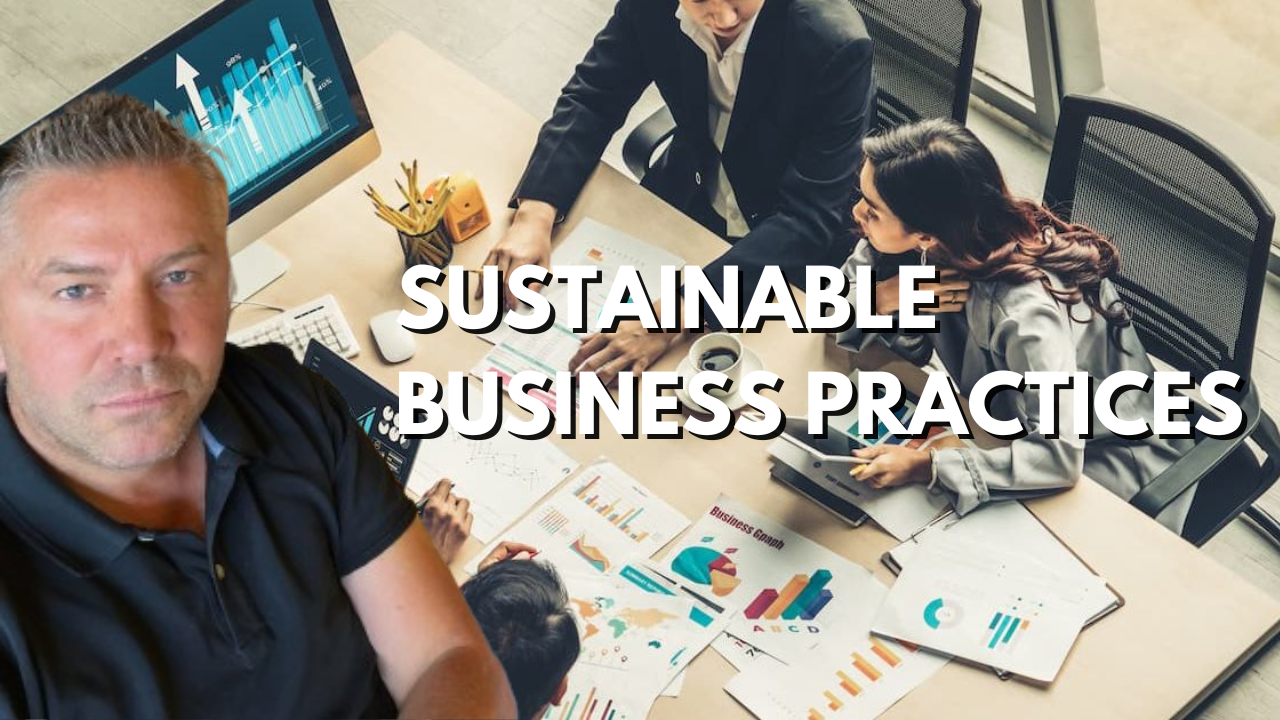Sustainability has become a critical imperative for businesses worldwide, as consumers, investors, and regulators increasingly demand environmentally responsible practices and products. David Deicke, a visionary entrepreneur and multimillionaire, has been at the forefront of promoting sustainable business practices across his ventures. In this blog post, we’ll explore the importance of sustainability in business, examine David Deicke’s commitment to sustainability, and discuss actionable strategies for businesses to embrace sustainability and build a greener future.
The Importance of Sustainability in Business:
- Environmental Impact: Businesses play a significant role in shaping the environment through their operations, supply chains, and products. Unsustainable practices, such as excessive resource consumption, pollution, and waste generation, contribute to environmental degradation, climate change, and biodiversity loss, posing risks to ecosystems and human health.
- Stakeholder Expectations: Stakeholders, including customers, employees, investors, and communities, increasingly expect businesses to demonstrate environmental stewardship and social responsibility. Companies that prioritize sustainability can enhance their reputation, attract environmentally conscious consumers and investors, and mitigate risks associated with environmental and social issues.
- Regulatory Compliance: Governments and regulatory bodies are imposing stricter environmental regulations and standards to address pressing environmental challenges, such as climate change, pollution, and resource depletion. Businesses that fail to comply with environmental regulations may face fines, penalties, and reputational damage, underscoring the importance of integrating sustainability into business operations and strategies.
David Deicke’s Commitment to Sustainability:
- Eco-Friendly Practices: David Deicke has implemented eco-friendly practices across his ventures to minimize environmental impact and promote sustainability. From adopting energy-efficient technologies and renewable energy sources to implementing waste reduction and recycling initiatives, David Deicke’s businesses prioritize environmental conservation and resource efficiency.
- Sustainable Supply Chains: David Deicke recognizes the importance of sustainable supply chains in reducing environmental footprint and promoting ethical sourcing practices. He works closely with suppliers and partners to ensure responsible sourcing of materials, fair labor practices, and compliance with environmental standards throughout the supply chain.
- Community Engagement: David Deicke actively engages with local communities and stakeholders to address environmental issues and support sustainable development initiatives. Whether through community outreach programs, environmental education, or philanthropic efforts, David Deicke demonstrates his commitment to making a positive impact on the environment and society.
Actionable Strategies for Businesses:
- Set Clear Sustainability Goals: Establish clear sustainability goals and targets aligned with environmental priorities, such as reducing carbon emissions, conserving water and energy, and minimizing waste generation. Develop a sustainability roadmap with actionable initiatives and metrics to track progress and performance.
- Embrace Circular Economy Principles: Adopt circular economy principles to minimize waste, maximize resource efficiency, and promote product reuse, recycling, and remanufacturing. Design products with lifecycle considerations in mind, explore opportunities for product refurbishment and resale, and engage in closed-loop recycling initiatives.
- Engage Stakeholders: Engage with stakeholders, including customers, employees, suppliers, investors, and communities, to gain buy-in and support for sustainability initiatives. Foster collaboration, transparency, and dialogue to address stakeholder concerns, solicit feedback, and co-create sustainable solutions that deliver value to all parties involved.
- Invest in Innovation: Invest in research and innovation to develop sustainable technologies, products, and solutions that address environmental challenges and meet evolving consumer preferences. Explore opportunities for eco-friendly materials, renewable energy sources, and innovative business models that prioritize sustainability and profitability.
Conclusion: Sustainability is no longer a choice but a necessity for businesses seeking long-term success and resilience in a rapidly changing world. By embracing sustainable business practices, companies can reduce environmental impact, enhance stakeholder trust, and create shared value for society and the planet. As David Deicke exemplifies, sustainability is not only a moral imperative but also a strategic opportunity for businesses to innovate, differentiate, and thrive in a greener, more sustainable future. As you embark on your sustainability journey, remember to integrate sustainability into your business strategy, engage stakeholders, and collaborate with partners to build a brighter, more sustainable future for generations to come.

